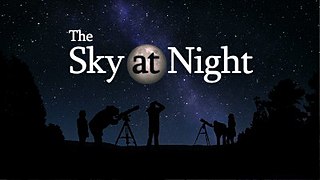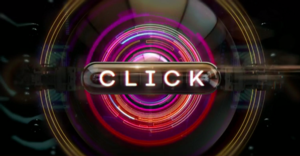
Craig Joseph Charles is an English actor, comedian, DJ, and television and radio presenter. He is best known for his roles as Dave Lister in the science fiction sitcom Red Dwarf and Lloyd Mullaney in the soap opera Coronation Street (2005–2015). He presented the gladiator-style game show Robot Wars from 1998 to 2004, and narrated the comedy endurance show Takeshi's Castle. As a DJ, he appears on BBC Radio 6 Music.

Today, colloquially known as the Today programme, is BBC Radio 4's long-running morning news and current-affairs radio programme. Broadcast on Monday to Saturday from 6:00 am to 9:00 am, it is produced by BBC News and is the highest-rated programme on Radio 4 and one of the BBC's most popular programmes across its radio networks. In-depth political interviews and reports are interspersed with regular news bulletins, as well as Thought for the Day. It has been voted the most influential news programme in Britain in setting the political agenda, with an average weekly listening audience around 6 million.

The Sky at Night is a monthly documentary television programme on astronomy produced by the BBC. The show had the same permanent presenter, Sir Patrick Moore, from its first broadcast on 24 April 1957 until 7 January 2013. The latter date was a posthumous broadcast, following Moore's death on 9 December 2012. This made it the longest-running programme with the same presenter in television history. Many early episodes are missing, either because the tapes were wiped or thrown out, or because the episode was broadcast live and never recorded in the first place.
Tomorrow's World is a former British television series about contemporary developments in science and technology. First transmitted on 7 July 1965 on BBC1, it ran for 38 years until it was cancelled at the beginning of 2003. The Tomorrow's World title was revived in 2017 as an umbrella brand for BBC science programming.
Woman's Hour is a radio magazine programme broadcast in the United Kingdom on the BBC Light Programme, BBC Radio 2, and later BBC Radio 4. It has been on the air since 1946.
Philippa Clare Ryan Forrester is a British television and radio presenter, producer and author.

Click is a weekly BBC television programme covering technology news and recent developments in the world of technology and the Internet, presented by Spencer Kelly and Lara Lewington. It was created by then BBC presenter Stephen Cole.

Question Time is a topical debate programme, typically broadcast on BBC One at 10:45 pm on Thursdays. It is usually repeated on BBC Two and on BBC Parliament later in the week. If there is a Leaders special, it would be broadcast simultaneously on BBC News. Question Time is also available on BBC iPlayer. Fiona Bruce currently chairs the show having succeeded David Dimbleby as presenter in January 2019.

Digital Planet was a radio programme broadcast on the BBC World Service presented by Gareth Mitchell. Alternating as contributors are Bill Thompson, Ghislaine Boddington and Angelica Mari, who comment on items in the programme and discuss them with Mitchell. The show, broadcast weekly, covered technology stories and news from around the world.

Richard Paul Bacon is an English television and radio presenter. He has worked on television shows including Blue Peter, The Big Breakfast, Good Morning Britain, and on radio stations including Capital FM, Xfm London and BBC Radio Five Live. In 2016, Bacon became the presenter of The National Geographic Channel's reboot of its documentary and panel discussion TV series, Explorer. He's recently established himself as a format creator, including The Hustler (ABC), This Is My House (BBC1) and I Literally Just Told You. All three sold internationally.

Scott Robert Mills is an English radio DJ, television presenter and occasional actor. He is best known for presenting the Scott Mills show on BBC Radio 1 from 2004 to 2022 and since then, on BBC Radio 2. Mills has also been a UK commentator for the semi-finals of the Eurovision Song Contest.
Up All Night is a late night phone-in programme broadcast on the national news/sport station BBC Radio 5 Live in the United Kingdom, usually on air between 1 and 5 am every night. It is also broadcast on most of the BBC's local radio frequencies across England as well as on Radio Scotland, Radio Wales and Radio Ulster.

Planet Earth is a 2006 British television series produced by the BBC Natural History Unit. Five years in the making, it was the most expensive nature documentary series ever commissioned by the BBC and also the first to be filmed in high definition. The series received multiple awards, including four Emmy Awards, a Peabody Award, and an award from the Royal Television Society.
Material World was a weekly science magazine programme on BBC Radio 4 broadcast on a Thursday afternoon. The programme's regular presenter was Quentin Cooper, with contributions from scientists researching areas under discussion in each programme.

Planet Earth: The Future is a 2006 BBC documentary series on the environment and conservation, produced by the BBC Natural History Unit as a companion to the multi-award-winning nature documentary Planet Earth. The programmes were originally broadcast on BBC Four immediately after the final three episodes of Planet Earth on BBC One. Each episode highlights the conservation issues surrounding some of the species and environments featured in Planet Earth, using interviews with the film-makers and eminent figures from the fields of science, conservation, politics, and theology. The programmes are narrated by Simon Poland and the series producer was Fergus Beeley.
Feedback is a BBC Radio 4 series dealing with listener reaction to the style and content of BBC radio broadcasting. The programme is presented by Andrea Catherwood.
Top Gear is a British motoring magazine and entertainment television programme. It is a revival by Jeremy Clarkson and Andy Wilman of the 1977–2001 show of the same name for the BBC, and premiered on 20 October 2002. The programme focuses on the examination and reviewing of motor vehicles, primarily cars, though this was expanded upon after the broadcast of its earlier series to incorporate films featuring motoring-based challenges, special races, timed laps of notable cars, and celebrity timed laps on a course specially-designed for the relaunched programme. The programme drew acclaim for its visual and presentation style since its launch, which focused on being generally entertaining to viewers, as well as criticism over the controversial nature of its content. The show was also praised for its occasionally-controversial humour and lore existing in not just the automotive community but in the form of internet memes and jokes. The programme was aired on BBC Two until it was moved to BBC One for its twenty-ninth series in 2020.
Pick of the Week is a long-running British radio programme featuring extracts from BBC radio programmes broadcast over the previous seven days. It was first broadcast on the BBC Home Service in 1959, and transferred to its successor station BBC Radio 4 in 1967. Until 1998, it was broadcast on Friday evening, with a repeat on Sunday. Since 1998, it has appeared on Sunday only.
A timeline of notable events relating to BBC Radio 4, a British national radio station which began broadcasting in September 1967.









